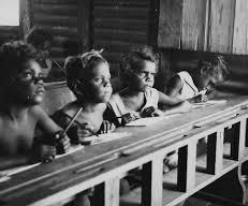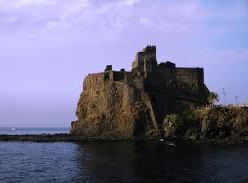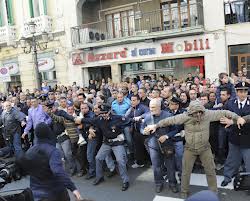 www.humanrights.gov.au
www.humanrights.gov.au Every time this has happened before, the authorities were labeled as heartless. In one instance that happened between 1909 and 1970, Australian aboriginal children were wrenched from their families and sent to live with stiff colonists. They were forced to live as servants and given no love or care. In another case in point, 150,000 children from poor families in England were shipped to Australia, often without their parent's knowledge, between 1920 and 1967. In both cases, the action caused much suffering in both the children and the parents.
Back to the present and the effort to call a halt to the endless cycle of Mafia crime in Italy. The Cosa Nostra may be the most famous criminal group, but they are no longer thought to be the most powerful after a series of high profile arrests and defections. Instead, a new, more secretive, and more impenetrable group has emerged from the Southern region of Calebria to become the de facto controller of Europe's drug trade. A criminal network, known as the 'Ndrangheta, now the biggest cocaine smugglers in Europe, was formed in 1860s by exiled Sicilians.
 www.businessinsider. com
www.businessinsider. com A judge in southern Italy is pioneering a program to help children of mafia bosses to escape a life of crime by taking them away from their parents at the first sign of trouble.
When these children are accused of bullying, of vandalizing cars or police cars, and families do nothing, the authorities intervene. So far about 15 of these teenagers—the great majority of them boys—have been taken away from their relatives and placed in care homes. But they are not in prison. They can go back home for visits every few weeks. The objective is to show these young men a different world from the one they grew up in. The hope is that when the youngster reaches 18 and is free to go back home permanently, he will chose not to enter the criminal underworld.
 www.buisinessinsider.com
www.buisinessinsider.com The program is still being described as experimental, and evolving, but Di Bella says he expects a lot more youngsters will be removed from Calabrian mafiosi families in the months and years to come, and that the agenda may be replicated elsewhere in Italy.
The story of a 16-year-old living at a detention centre has come to light. When it was time for him to leave, his mother said that he had to return to the family to take the place of his mafiosi father, who had been killed. He chose to move away to Milan. The authorities found him a job. But he had to cut off links with his family.
Choosing between family and a new set of values can't be easy. If we are to believe movies we see about crime families, those who oppose the mafia are never safe. And there's another angle to consider. Even though the authorities might have the child's interests at heart, I can't help thinking that this way of tackling the problem might have serious repercussions for the families as well as society. Either way, once a child is born into a mafia family, they face a difficult life.

 RSS Feed
RSS Feed






